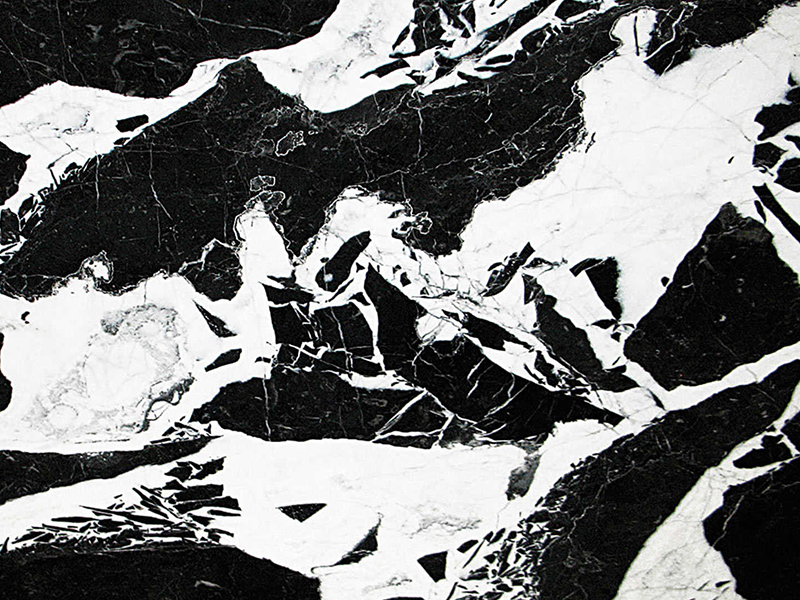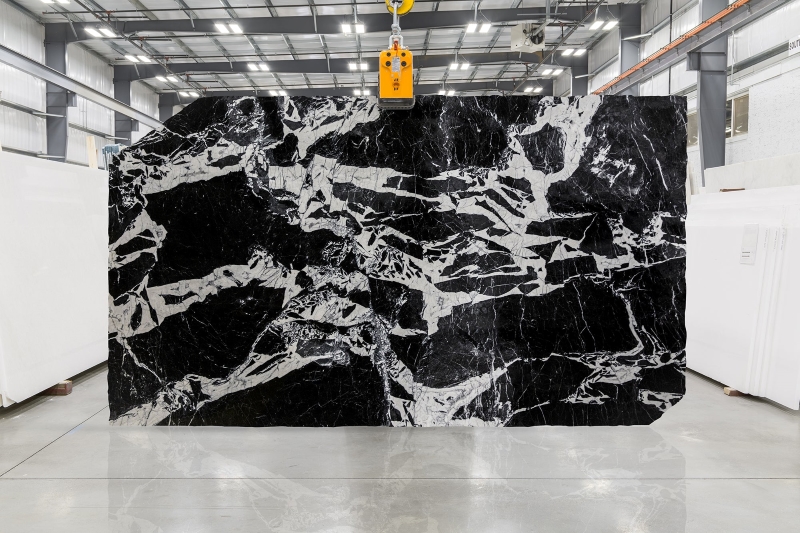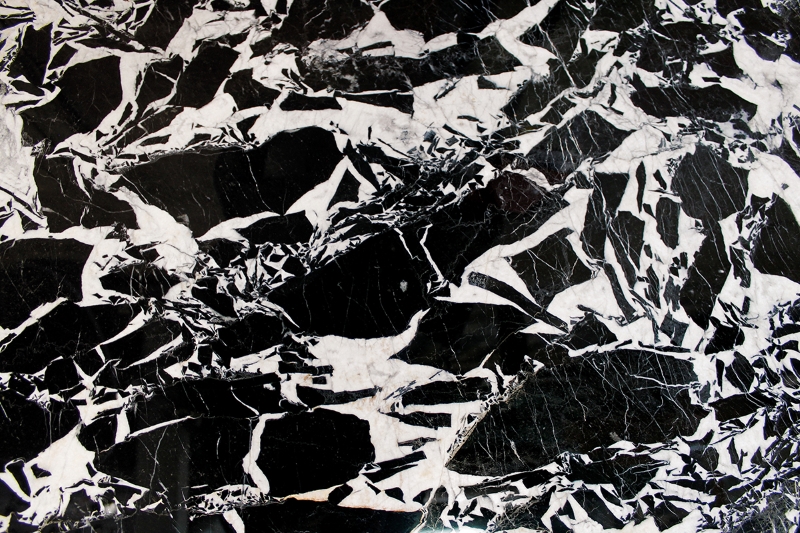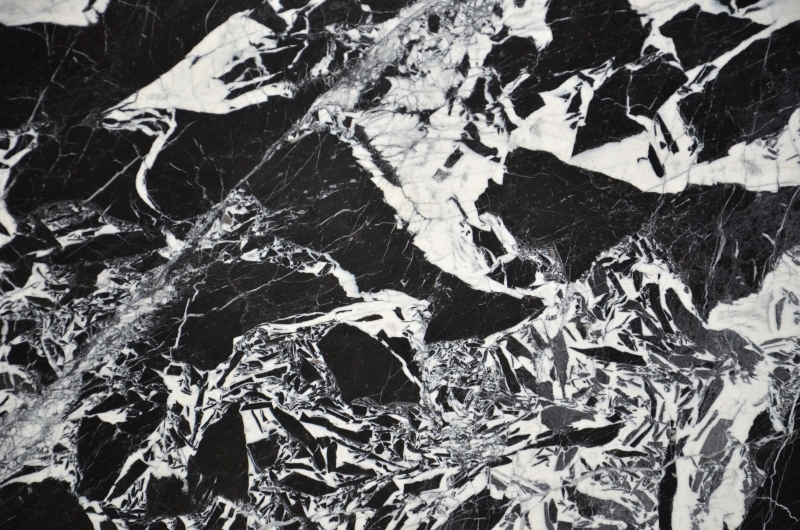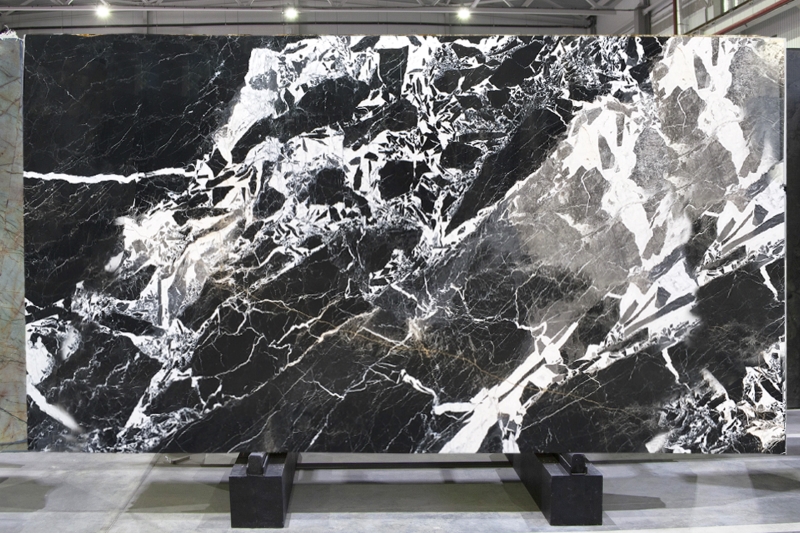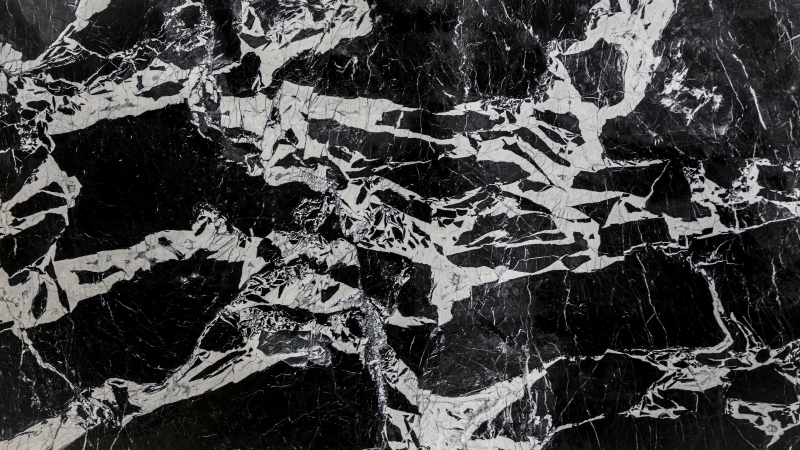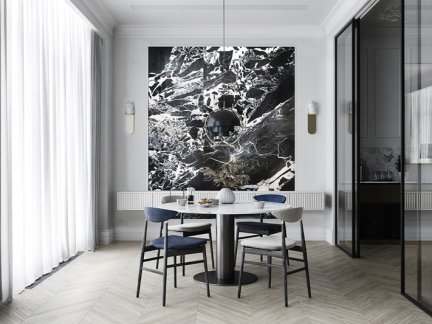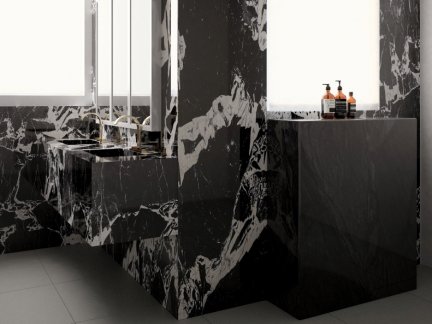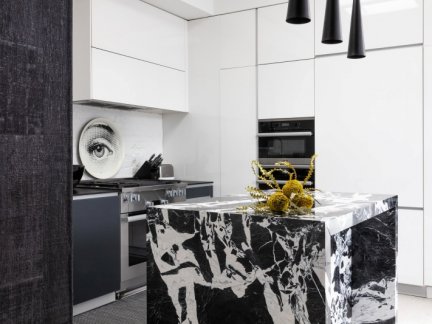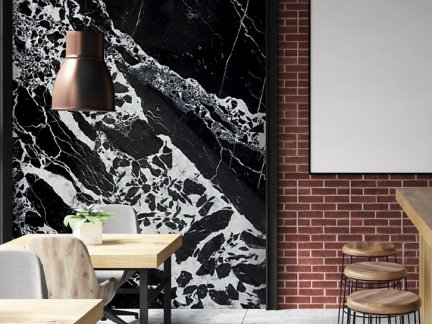Grand Antique
Stone: Marble
Color: black
Country of origin: France
Radioactivity class: 1 class
COST OF TILES
| Dimensions, mm | Processing | Cost, $ / m2 |
| Individually | - | check the price |
| 20*400*800 | - | - |
| 20*600*1200 | - | - |
COST OF SLABS
| Dimensions, mm | Processing | Cost, $ / m2 |
| Individually | - | check the price |
| 20*3100*2000 | - | - |
| 20*600*1200 | - | - |
Examples of using
Description
GRAND ANTIQUE marble is mined in France in the valley of the river Lez, southeast of Saint-Girons, in the Ariège region.
This prestigious marble has a unique contrast of black and white that is not typical of any other type. The formation of this tectonic breccia has been dated to the Late Cretaceous after the corrugation of the Northern Pyrenees about 65 million years ago.
The ancient Romans were the first to mine this stone in a quarry. The material they called "marmum celticum" was exported to Rome and Constantinople. However, it was used more widely during the Byzantine Empire to decorate the greatest architectural masterpiece of the time: Hagia Sophia in Istanbul. After that, the quarry was abandoned, and the remaining blocks were used to decorate famous basilicas: St. Peter, Santa Maria Maggiore and Santa Cecilia in Rome and St. Mark in Venice.
This unique decorative material is mainly suitable for columns, marquetry, fireplaces, vases, countertops, floors, tapestries and other stone decorations. It impresses with its powerful contrast and is able to set an exciting tone for many indoor and outdoor projects.
This prestigious marble has a unique contrast of black and white that is not typical of any other type. The formation of this tectonic breccia has been dated to the Late Cretaceous after the corrugation of the Northern Pyrenees about 65 million years ago.
The ancient Romans were the first to mine this stone in a quarry. The material they called "marmum celticum" was exported to Rome and Constantinople. However, it was used more widely during the Byzantine Empire to decorate the greatest architectural masterpiece of the time: Hagia Sophia in Istanbul. After that, the quarry was abandoned, and the remaining blocks were used to decorate famous basilicas: St. Peter, Santa Maria Maggiore and Santa Cecilia in Rome and St. Mark in Venice.
This unique decorative material is mainly suitable for columns, marquetry, fireplaces, vases, countertops, floors, tapestries and other stone decorations. It impresses with its powerful contrast and is able to set an exciting tone for many indoor and outdoor projects.
PHYSICOCHEMICAL PROPERTIES
| Volume weight: | 2725 kg / m3 |
| Compressive strength: | 145 MPa |
| Flexural strength: | 15 MPa |
| Moisture absorption: | 0.3% |
| Frost resistance: | 50 cycles |
